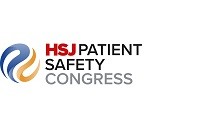Irina Spirieva, general manager of Besins Healthcare UK examines the barriers to effective and equitable hormone healthcare, and how targeted initiatives can enhance patient outcomes while optimising NHS service provision
Sponsored and written by
The landscape of hormone health in the UK is at a pivotal moment. With the new government in situ and Wes Streeting as the new health and social care secretary, there are likely to be changes in priorities and strategies. However, significant barriers persist in ensuring accessible and equitable care for men and women, particularly in light of supply chain and workforce challenges.
Addressing the menopause crisis: A workforce imperative
Menopause is not just a women’s health issue but also an economic and social one. Around 1 million women have left the UK workforce in recent years due to menopause symptoms[1], affecting key sectors like healthcare and education where women make up around 75 per cent of employees[2]. In the NHS alone, 77 per cent of its 1.3 million workers are women[3]. Menopausal symptoms’ impact on workplace performance can be profound, with up to 84 per cent of women with menopausal symptoms reporting negative effects at work[4] and 10 per cent leaving their jobs entirely[3]. Supporting women through menopause is crucial for both their wellbeing and workforce productivity.
Men’s hormone health: A growing concern
Testosterone deficiency is a neglected area of health for men and can have a considerable impact on quality of life, wellbeing, mental health, and long-term health outcomes[5]. Age-related testosterone deficiency is more common in men over 40[5] and is associated with other conditions such as Type 2 diabetes[6] and obesity[7].
Pharmaceutical companies as partners in care
Pharmaceutical companies like Besins Healthcare UK, with its focus on hormone health, are uniquely positioned to support the NHS and be valuable partners in helping ensure equitable hormone health care for patients, alongside lifestyle and other interventions. Besins is committed to working with the NHS to enhance service delivery, improve education for healthcare professionals, and support patients in accessing the right care at the right time.
Supply stability remains a critical priority, particularly as more women seek treatments. Besins has significantly invested to rapidly scale up manufacturing capacity to ensure the resilience and security of supply, which has been made possible with the opening of a new factory as of September 2023, which has boosted our HRT output by 30 per cent.
Through our condition awareness campaign “Language of Menopause” (www.languageofmenopause.co.uk), Besins is working to empower menopausal women with accessible, multi-language resources that encourage informed healthcare conversations. In addition, Besins’ “Stronger Voices” (www.strongervoices.co.uk) testosterone deficiency education website has been developed to empower men to understand the condition, identify potential symptoms and take action to address their wellbeing.
Furthermore, Besins’ commitment to educational roadshows and online learning for healthcare professionals aims to fill knowledge gaps and ensure that care is culturally sensitive and patient-centred.
The path forward in hormone health
As we look to the future, supporting hormone health for both women and men will be crucial in building a healthier, more resilient society. We must seize this moment of change to ensure that hormone care is accessible, inclusive, and capable of meeting the diverse needs of the UK population.
Job bag: MAT-BHUK-NP-0262
Date of preparation: October 2024
Source
[1] UK Parliament Women and Equalities Committee. Menopause and the workplace inquiry (HC 91). Written evidence from BUPA [MEW0046]. 2021. https://committees.parliament.uk/writtenevidence/39244/pdf. Last accessed October 2024
[2] House of Commons. Women and the UK economy. Research Briefing. 2024. https://researchbriefings.files.parliament.uk/documents/SN06838/SN06838.pdf. Last accessed October 2024
[3] NHS Employers. Menopause and the workplace. 2024. https://www.nhsemployers.org/articles/menopause-and-workplace. Last accessed October 2024
[4] Chartered Institute of Personnel and Development (CIPD). Menopause in the workplace: Employee experiences in 2023 - Report. 2023. https://www.cipd.org/globalassets/media/knowledge/knowledge-hub/reports/2023-pdfs/2023-menopause-report-8456.pdf. Last accessed October 2024
[5] Hackett G, Kirby M, Rees RW et al. The British Society for Sexual Medicine Guidelines on Adult Testosterone Deficiency, With Statements for Practice. World J Mens Health. 2023;41(3):508-537. doi: 10.5534/wjmh.221027. Last accessed October 2024
[6] Kapoor D et al. Clinical and biochemical assessment of hypogonadism in men with type 2 diabetes: correlations with bioavailable testosterone and visceral adiposity. Diabetes Care. 2007;30(4):911-917. doi:10.2337/dc06-1426. Last accessed October 2024
[7] Glass AR et al. Low Serum Testosterone and Sex-Hormone-Binding-Globulin in Massively Obese Men. J Clin Endocrinol Metab. 1977;45(6):1211-1219. doi:10.1210/jcem-45-6-1211. Last accessed October 2024




























